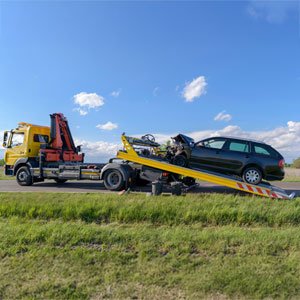Summary Judgment For Florida Rear-End Presumption Requires No Comparative Fault
Car AccidentsIn the case of Shawn Restal v. Bridget A. Nocera, et al., Case Numbers 5D17-2 and 5D17-1635 (Fla. 5th DCA March 8, 2019), Florida’s Fifth DCA held that the negligence of the rear driver in a rear-end collision must be the sole (or only) cause of the collision in order to grant a plaintiff’s motion for summary judgment. Further, see the clarification available from April 18, 2018 regarding Restal v. Nocera.
Notwithstanding the comparative fault issues raised in this case, Fonger v. Nall (Fla. 5th DCA 2019) held that a sudden stop at an intersection is not unexpected and will not rebut the rear-end presumption of negligence in Florida.
What Happened In The Case
This case began when Mr. Restal’s vehicle struck the rear end of Ms. Nocera’s vehicle. Ms. Nocera claimed that she was attempting to make a U-turn and had begun to move over into a center turn lane and slowed down until a point where she realized that she could not make a U-turn in that location. In doing so, she said that she slowed down to 33 miles per hour.
On the other hand, Mr. Restal defended that Ms. Nocera did not use her brakes at all or move into the turn turn lane. However, Mr. Restal did admit that he failed to maintain a proper distance from Ms. Nocera.
Where The Trial Judge Went Wrong
The plaintiff filed a motion for partial summary judgment seeking a ruling from the trial judge that Mr. Restal was legally responsible for the collision under the so-called rear-end presumption in Florida. The trial judge granted the plaintiff’s motion for partial summary judgment because of Mr. Restal’s admission that he was following too closely. Thereafter, a trial was held solely on the issue of damages and this appeal followed.
In short order, the problem with the judge’s ruling on the rear-end presumption is that motions for summary judgment are supposed to be viewed in the light most favorable to the non-moving party and there can be no genuine issue of material fact left.
In other words, the non-moving party in a summary judgment hearing has the advantage and the facts have to such that they can only be interpreted one way.
The fact that the jury could have found Mr. Restal’s version of events credible could have resulted in a finding of comparative fault on Ms. Nocera. Mr. Restal has only admitted negligence to a degree (to what degree was uncertain and needed determination by a jury).
Overview Of Florida’s Rear-End Presumption
Here’s a little overview of the rear-end presumption in Florida law should you need it:
- The rear-end presumption is rebuttable (Clampitt v. D.J. Spencer Sales, 786 So. 2d 570 (Fla. 2011))
- Any evidence which would allow a jury to infer that the front driver in a rear-end collision was also negligent is enough to rebut the rear-end presumption (Birge v. Charron, 107 So. 3d 350 (Fla. 2012)
- The rear-end presumption does not completely insulate a negligent lead driver from liability for comparative fault (Servello & Sons Inc. v. Sims, 922 So. 2d 324 (Fla. 5th DCA 2005).
Seek Help For Your Case
If you would like help from a car accident attorney in Lakeland, Florida, please contact us for a free consultation about your Florida car accident lawsuit.


